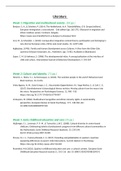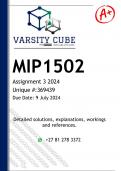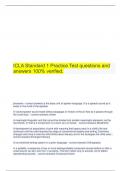Samenvatting
Overzicht en samenvattingen alle artikelen van Cultural Diversity
- Instelling
- Universiteit Utrecht (UU)
Dit document bestaat uit overzichtelijke samenvattingen van de cursus Cultural Diversity. De samenvattingen bevatten alle belangrijke aspecten van de artikelen. Het document is in het Engels geschreven, op 2 artikelen na (wegens het feit dat de Nederlandse versie van de artikelen hiervoor was gelez...
[Meer zien]













